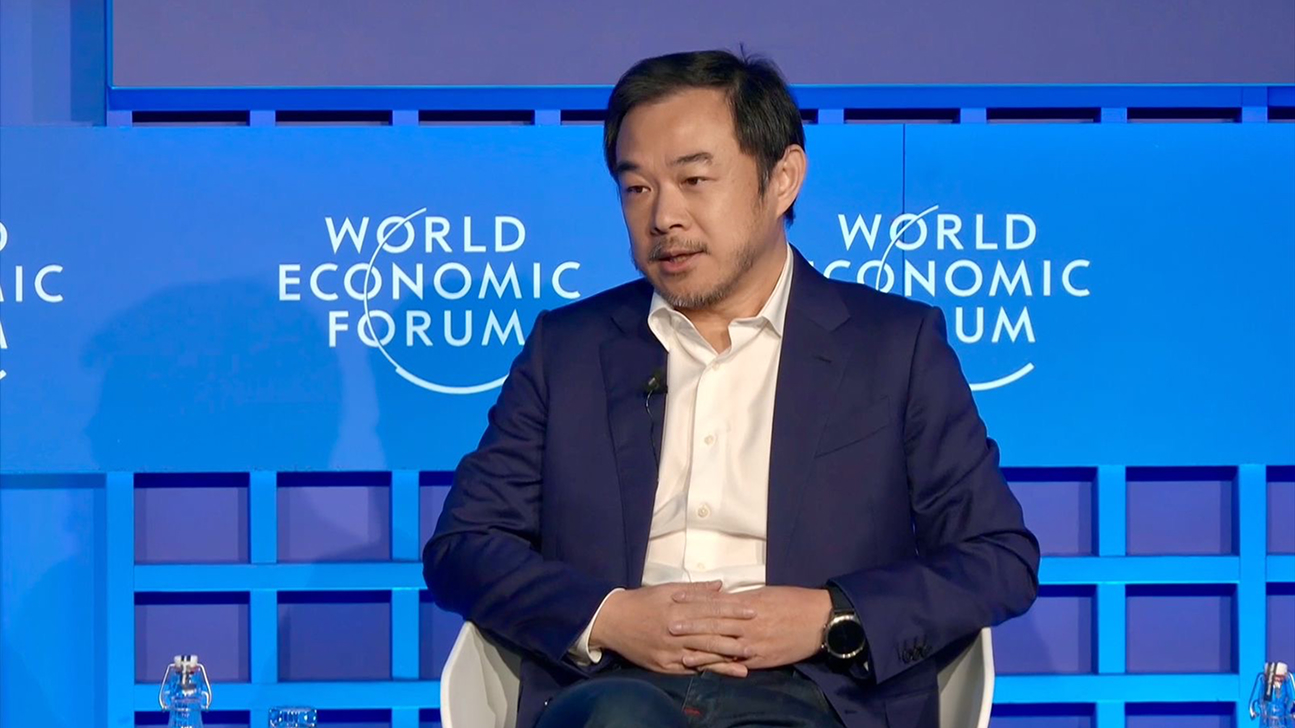Eric Xing
President and University Professor
Research Interests
Professor Xing’s main research interests are the development of machine learning and statistical methodology, and large-scale computational systems and architectures, for solving problems involving automated learning, reasoning, and decision-making in high-dimensional, multimodal, and dynamic possible worlds in artificial, biological, and social systems. LinkedIn Personal website

As MBZUAI’s first president, Professor Xing has led the University’s extraordinary growth in fundamental AI research and has presided over the assemblage of a world-class cadre of eminent faculty.
At MBZUAI, Professor Xing has created a platform for students and faculty to showcase their research at a national level and in alignment with national priorities, while maintaining excellence and a strong balance in basic research and translational R and D.
With a wealth of experience in academia as an active and world-leading scientist, and as an entrepreneur and administrator, Professor Xing serves as an ambassador from the innovation frontier to educate and train those in the emerging and sometimes chaotic field of artificial intelligence and its application in the real world.
Under Professor Xing's direction, numerous partnerships have been established with IBM, Carnegie Mellon University (CMU), École Polytechnique, the Weizmann Institute of Science (WIS), MIT, AWS, the Gates Foundation, the Abu Dhabi Health Services Company (SEHA), the Abu Dhabi Department of Energy, the UAE Ministry of Climate Change and Environment, and many more.
Professor Xing has built academic homes and robust curriculums for faculty and students to get the most from their time at the University. He has developed a one-of-a-kind executive and professional training program for senior executives and government leaders, as well as a pioneering undergraduate program.
He has brought together an operations team which is leading the rapid growth of the institution. He has designed and built a state-of-the-art supercomputing center optimized for distributed AI computation.
Academic contributions
As a world-leading computer scientist, Professor Xing excels in theory, application, and system at the same time. His major contributions lie in the foundational work of statistical machine learning methodology, including pioneering work in distance metric learning; statistical models and analyses of networks; methods for learning and analyzing graphical models; and new systems, theories, and algorithms for distributed machine learning.
His work also focuses on foundation models and world models, including leadership of the Institute of Foundation Models (IFM) and the development of systems such as PAN and K2-Think. He has played a leading role in advancing open and reproducible large language models through initiatives such as LLM360 and models including Vicuna and JAIS. His work also extends into AI for science, where he leads efforts on AI-Driven Digital Organisms (AIDO), Virtual Cell modeling, and large-scale biological foundation models such as GET, alongside contributions to benchmarking and evaluation infrastructure that underpin modern AI research.
Main research themes
- Core machine learning - With an emphasis on theory and algorithms for learning complex probabilistic models, learning with prior knowledge, and reasoning and decision-making in open, evolving, and uncertain possible worlds
- System architecture and strategies for large scale machine learning - With emphasis on developing general purpose systems for machine learning on massive data with massive models on industrial-scale multicore and distributed systems
- Healthcare and medical applications - With an emphasis on developing algorithms and solutions that address problems of practical clinical, medical, and biological concerns
- Information and intelligent systems - With an emphasis on developing web-scale, federated, and on-line machine learning systems for social media, computer vision, and HCI applications
- Computational biology - With an emphasis on statistical and computational methodological innovation, which not only supports computational biologists’ empirical analysis of high-dimensional data in problems such as GWAS, haplotype inference, population structure, network estimation, but also advances the frontier of statistical and algorithmic research itself
Professor Xing supports greater access to AI and open-source platforms to encourage scalable, sustainable, and repeatable processes which opens doors to greater research and industrial possibilities. As a thought leader, Xing is continually bringing together the AI community from around the world to pursue ideas which will impact society in the most beneficial way. He founded the CASL open-source project to help standardize the first truly commercial and versatile AI operating system that will make for better and seamless AI engineering and production.
Professor Xing is a recipient of the National Science Foundation (NSF) Career Award, the Alfred P. Sloan Research Fellowship in Computer Science, the United States Air Force Office of Scientific Research Young Investigator Award, and the IBM Open Collaborative Research Faculty Award. He is a board member of the International Machine Learning Society (IMLS). He is a fellow of the Association of Advancement of Artificial Intelligence (AAAI), the Institute of Electrical and Electronics Engineers (IEEE), and of the American Statistical Association (ASA). In 2023, Xing was elected a fellow of the Association for Computing Machinery (ACM).
Professor Xing holds a Ph.D. in Molecular Biology and Biochemistry from Rutgers University, and a Ph.D. in Computer Science from the University of California, Berkeley. He completed his undergraduate study at Tsinghua University.
- Ph.D. in Molecular Biology and Biochemistry, Rutgers University, USA
- Ph.D. in Computer Science, University of California, Berkeley, USA
- Institute of Mathematical Statistics (IMS) Fellow for 2023
- Association for Computing Machinery (ACM) Fellow for 2022
- American Statistical Association (ASA) Fellow for 2022
- Carnegie Science Award, 2019
- Fellow, IEEE, 2018
- Fellow, Association of Advancement of Artificial Intelligence (AAAI), 2016
- Member, Board of the International Machine Learning Society, 2015
- Member of the DARPA Information Science and Technology (ISAT) Advisory Group, 2011-2014
- IBM Open Collaborative Research Faculty Award, IBM, 2012-2014
- Young Investigator Award, United States Air Force Office of Scientific Research, 2010-2015
- Alfred P. Sloan Research Fellowship in Computer Science, 2008-2010
- Career Award, National Science Foundation, 2006-2011
- (Advisor of) KDD best Ph.D. Dissertation Award, 2012 (Winner), 2014 (Winner), 2015 (Runner up)
- Jay Lepreau Best Paper Award, The 15th USENIX Symposium on Operating Systems Design and Implementation (OSDI), 2021
- Nomination for the Best Paper Award, Association for Computational Linguistics (ACL), 2019
- Nvidia Pioneering Research Award, Advances in Neural Information Processing Systems 32 (NeurIPS ’18)
- Nvidia Pioneering Research Award, Advances in Neural Information Processing Systems 31 (NeurIPS ’17)
- Outstanding Long Paper, Association for Computational Linguistics (ACL), 2016
- Best Paper Award, ACM Symposium on Cloud Computing (SoCC), 2015
- Honorable Mentioning, Association for Computational Linguistics (ACL), 2015
- Runner-up Best Paper Award, Conference on Empirical Methods on Natural Language Processing (EMNLP), 2014
- Best Paper Award, The 1st IEEE Workshop on Large Scale Visual Commerce, 2013
- Best Paper Award, International Conference on Intelligence Systems for Molecular Biology (ISMB), 2011
- Best Paper Award, Association for Computational Linguistics (ACL), 2009
- Best Paper Award, SIAM International Conference on Data Mining (SDM), 2007
- John Van Ryzin Award for best paper, International Biometric Society-ENAR Annual Meetings, 2006
- Runner-up Best Student Paper Award, 18th Conference on Uncertainty in Artificial Intelligence (UAI), 2003
- Regents Fellowship, UC Berkeley, 1999
- Anthony Lu Best Paper Award, Rutgers University, 1999
- Publication Eric Xing
Xing has authored or contributed to more than 400 cited research papers and reports. His research has been cited more than 44,000 times by leading academics and academic journals. His main research interests are in the development of machine learning and statistical methodology, and large-scale computational systems and architecture, for solving problems involving automated learning, reasoning, and decision-making in high-dimensional, multimodal, and dynamic possible worlds in artificial, biological, and social systems.
- Distance metric learning with application to clustering with side-information. E Xing, M Jordan, SJ Russell, A Ng. Advances in neural information processing systems 15, 2002.
- Mixed membership stochastic blockmodels. EM Airoldi, D Blei, S Fienberg, E Xing. Advances in neural information processing systems 21, 2008.
- Object bank: A high-level image representation for scene classification & semantic feature sparsification. LJ Li, H Su, L Fei-Fei, E Xing. Advances in neural information processing systems 23, 2010.
- Theoretically principled trade-off between robustness and accuracy. H Zhang, Y Yu, J Jiao, E Xing, L El Ghaoui, M Jordan. International conference on machine learning, 7472-7482, 2019.
- Feature selection for high-dimensional genomic microarray data. EP Xing, MI Jordan, RM Karp. Icml 1, 601-608, 2001.
- Toward controlled generation of text. Z Hu, Z Yang, X Liang, R Salakhutdinov, EP Xing. International conference on machine learning, 1587-1596, 2017.
Contact faculty affairs
Interested in working with
our renowned faculty?
Fill out the below form and we will get back to you.


